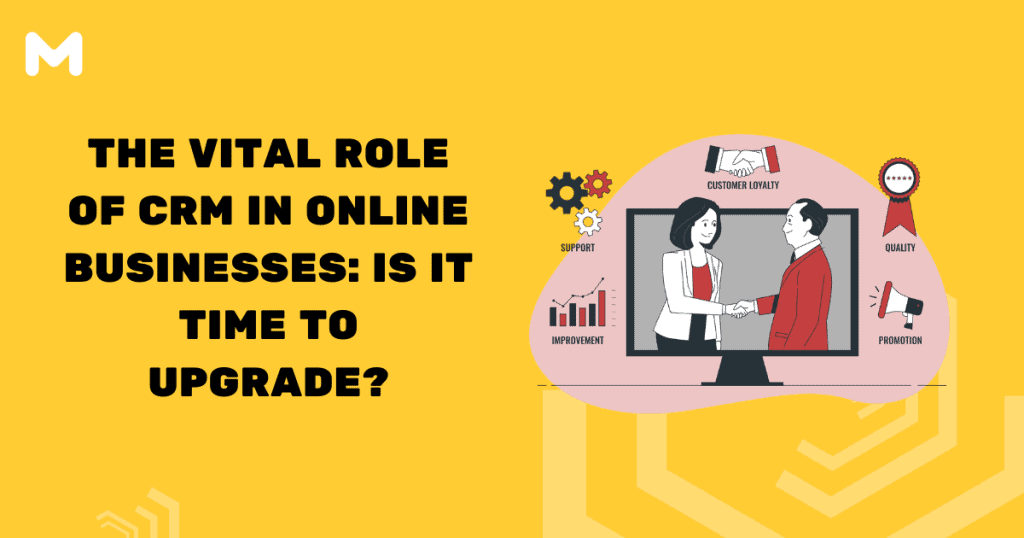In the competitive world of online business, one must constantly evolve to stay ahead. Among the many tools and technologies that can elevate a business, Customer Relationship Management (CRM) systems hold a distinct importance. But how crucial is a CRM to your online venture, and is it the right choice for you? The importance of ecommerce for businesses cannot be overstated, as it provides unprecedented opportunities to reach a global audience and streamline operations. A robust CRM system not only helps manage customer interactions but also enables data-driven insights that can enhance decision-making and foster loyalty. By integrating a well-suited CRM into your strategy, you can unlock the full potential of ecommerce and keep your business agile and customer-focused.
What is CRM?
At its core, CRM systems manage a company’s interactions with current and potential customers. They use data analysis about a customer’s history with a company to improve business relationships, streamline processes, and enhance profitability. A powerful CRM system can handle various tasks including contact management, sales management, productivity, and more.
Why is CRM Important for Online Businesses?
- Personalized Customer Interactions: In an era where personalization drives loyalty, a CRM helps in understanding individual customer preferences, purchase history, and even grievances. This enables businesses to tailor their outreach, ensuring that marketing messages resonate more deeply.
- Efficient Lead Management: Track potential customers at every stage of the sales funnel. From the moment a visitor lands on your website to the point they make a purchase, CRM systems can trace and optimize every step of the journey.
- Improved Decision-making: By offering real-time data analytics, CRM tools can give businesses crucial insights, helping them make informed decisions about where to steer their marketing efforts or how to improve their products and services.
- Increased Sales: By having a comprehensive understanding of customers, businesses can pitch the right products to the right people at the right time, maximizing the probability of sales.
- Streamlined Communication: A good CRM serves as a centralized platform for all customer interactions, ensuring that communication both within the team and with clients remains consistent and efficient.
Top CRM Tools to Consider
If you’re looking to adopt a CRM system, here are a few top-notch tools to consider:
- Salesforce: Often regarded as the most powerful CRM tool, Salesforce offers a wide range of features, from sales automation to marketing analytics.
- HubSpot CRM: Known for its user-friendly interface, HubSpot provides an excellent platform for inbound marketing, sales, and customer service.
- Zoho CRM: A robust solution for businesses of all sizes, Zoho CRM offers an impressive suite of tools and integrations.
- Microsoft Dynamics 365: Microsoft’s foray into CRM provides deep integration with other MS tools, making it a favorite among businesses already using the Microsoft ecosystem.
The Flip Side: Cons of CRM
While CRMs offer numerous benefits, they aren’t without their drawbacks:
- Cost: A full-featured CRM system, especially for large organizations, can be pricey. The costs aren’t just in the software, but also in training staff to use it.
- Complexity: While some CRMs are user-friendly, others can be complex. Implementation can become a time-consuming process.
- Dependence: Over-reliance on CRM can sometimes mean teams forget the importance of human touch and judgment in certain business scenarios.
- Integration Issues: If not properly integrated with other tools in your business, a CRM can become more of a hindrance than a help.
The Big Question: Is CRM Right for You?
While the benefits of CRM are clear, it’s crucial to assess its relevance to your specific business context. Ask yourself:
- Do I often lose track of interactions with leads or customers?
- Could sales increase with better follow-up or understanding of my customer base?
- Am I looking to scale and require a tool to manage increased customer interactions?
If you find yourself nodding affirmatively, a CRM might be your next best investment.
However, be equally critical. Understand that the real value of CRM isn’t just in its software capabilities, but in how you leverage it for genuine customer relationship building. If your business is in its nascent stages or if you believe the essence of your business communication can’t be captured by a software algorithm, it might be worth holding off.
Where To Start
CRM systems undeniably offer a competitive edge in the modern business environment. Their ability to streamline communication, enhance customer understanding, and drive sales is unparalleled. However, it’s essential to approach the decision with clarity, understanding both its potential rewards and its inherent challenges.
It’s not about following a trend; it’s about understanding the fundamental needs of your business. Challenge your decision-making, analyze your requirements, and if the pieces fit, let CRM be the catalyst propelling your online business to new heights.


